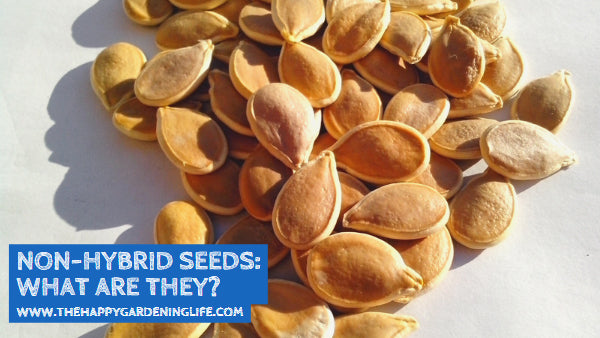
Non-Hybrid Seeds: What Are They?
Share

The first one being that non-hybrid seeds are not crossbred in any way. They hold the same genetic traits as their parent plants, so the seeds will closely resemble their original varieties when they grow.
Since non-hybrid seeds stay very true to their type, you can easily save the seeds in pickle jars, plant them year after year, and still expect the same quality of crop.
No need to even purchase new batches—you will become self-sufficient and have an infinite supply of seeds that will feed your family for a lifetime!
Most of the non-hybrid seeds you can find these days have also been handed down from many generations. They’re called heirloom seeds, aged around 50 to 100 years old, and sometimes even 150 years old for the really rare varieties. The fact that they’ve been passed down for decades further helps them stay true to their variety and retain their original genetic qualities.
Naturalness is another reason why non-hybrids are considered one of the truest seed types. Non-hybrid seeds are open-pollinated, which means their pollination occurs only through birds, insects, wind and other natural methods. Open-pollinated seeds help bring forth more generations of their plants—and this guarantees continuous produce for your home garden.
Non-hybrid seeds are also known as non-GMO seeds. They are not genetically modified so the resulting crops are very safe to eat. You want to avoid using genetically-modified seeds at all cost because they are altered in scientific labs and tested with various plant vaccines—the results of which are not always reliable.
The safe choice is always with non-hybrid, non-GMO heirloom seeds because they are free from pesticides and provide more nutritious harvests than any other types of seeds. Your homegrown fruits and vegetables will not only look good but taste good as well. You and your family can now lead a much healthier lifestyle when you plant non-hybrid seeds in your backyard garden.
As you can see, non-hybrid seeds come with so many advantages for home gardeners:
1. They’re all-natural
2. They stay true to their variety
3. They’ve existed for many generations
4. They’re open-pollinated
5. They’re not genetically modified
6. They’re safe for consumption
7. They produce healthy, delicious crops
8. They help you save money on seeds
9. They provide you with a lifetime supply of seeds
With all these amazing benefits, it’s easy to see why many families always prefer non-hybrid, non-GMO, open-pollinated, heirloom seeds for their gardens. So the next time you buy seeds, do consider getting non-hybrid seeds for the best results!
